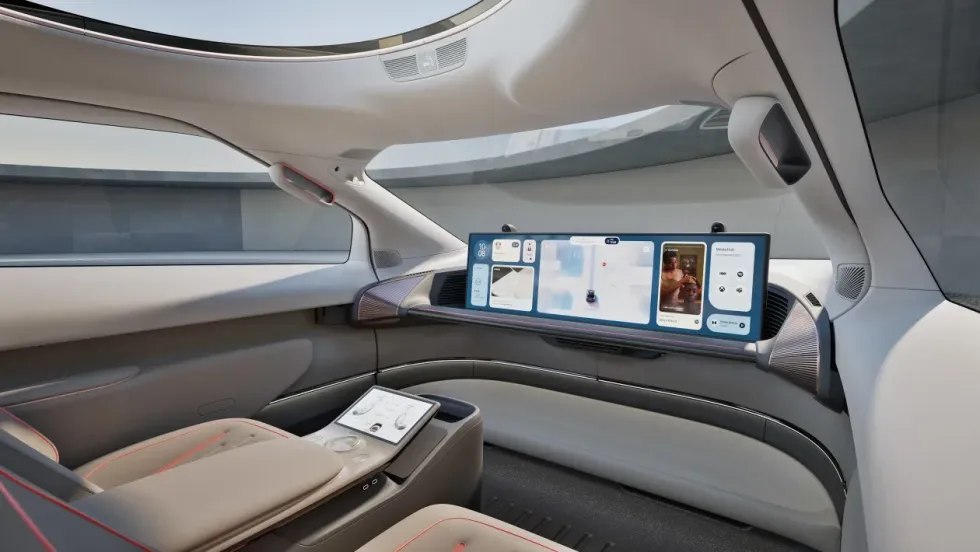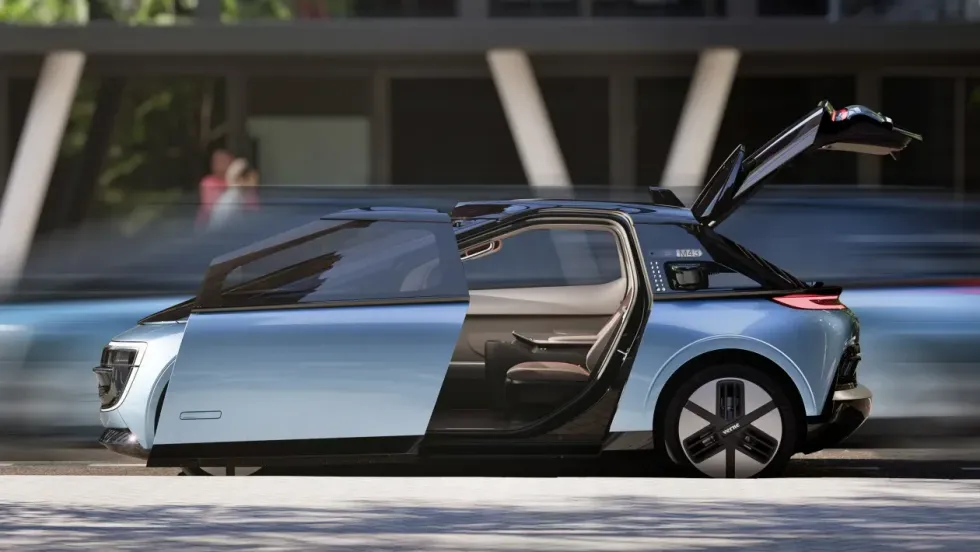Revolutionary self-driving robotaxis could hit UK roads in 2027 after 'fundamental' law changes rolled out

The robotaxis are expected to cover 62,000 miles a year
RIMAC

The robotaxis are expected to cover 62,000 miles a year
Self-driving taxi technology is set to hit the UK in the coming years which could revolutionise the way Britons travel.
The new Verne robotaxi was unveiled at a global event, with its owner Rimac hoping to roll out the tech across the UK by 2027.
The driverless Verne taxi is set to rival Uber as the latest ride-hailing app to grab the attention of consumers and is set to be deployed first in the Croatian capital of Zagreb in less than two years.
Each car will be operating for 23.5 hours a day, with just half an hour being spent charging and cleaning the vehicle.
Do you have a story you'd like to share? Get in touch by emailingmotoring@gbnews.uk

The vehicles will be fitted with 43-inch screens
RIMAC
Johann Jungwirth, executive vice president of Autonomous Vehicles at Mobileye, which has partnered with Rimac, said the promise and benefits of autonomous vehicles to road safety and accessibility have started to “come into focus”.
He explained that the innovative new vehicle platform and ecosystem reflect the potential “autonomous mobility has to change our expectations of personal transportation”.
Verne is expected to be tested in Manchester before Rimac expands the project across the UK, with expectations that they will cover 62,000 miles a year.
The taxi features a two-seat, self-driving electric car which can be accessed through an app from a “mothership” facility, as well as sliding doors developed to not obstruct traffic.
The interior of the car is fitted with a 43-inch screen to keep passengers entertained with things like video streaming and video games during the journey.
The launch of a self-driving vehicle comes as the UK passes its first Automated Vehicle Bill.
The legislation is expected to help the UK unlock massive safety and economic benefits of self-driving passenger cars and public transport services while supporting the rollout of electric vehicles.
The Society of Motor Manufacturers and Traders said self-driving technology can reduce the risk of human error, save 3,200 lives and prevent 53,000 serious accidents by 2040.
It could also help raise £38billion for the economy and is expected to be in full swing by 2026.
Appetite for self-driving technology has been well documented among Britons in the past few months.
Data from the SMMT found that nearly a third of adults would use an automated bus, shuttle or taxi service if it were available today.
Meanwhile, one in four said they are likely to try self-driving features in a personal car, even though they have yet to experience the technology
LATEST DEVELOPMENTS:

Self-driving vehicle technology could raise £38billion for the UK economy
RIMAC
The poll also found that young people are almost twice as likely to try a personal car with self-driving features than any other age group.
Mike Hawes, chief executive of the SMMT, said: "Backing the AV Bill now is fundamental if Britain is to not only develop but deploy self-driving passenger cars and services.
"We have the foundations, but other major markets are stealing a march, with regulation already in place allowing them to benefit from UK-developed self-driving tech that cannot be rolled out here."